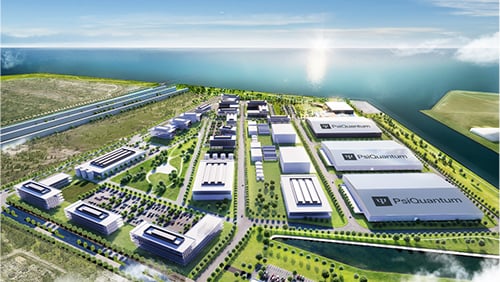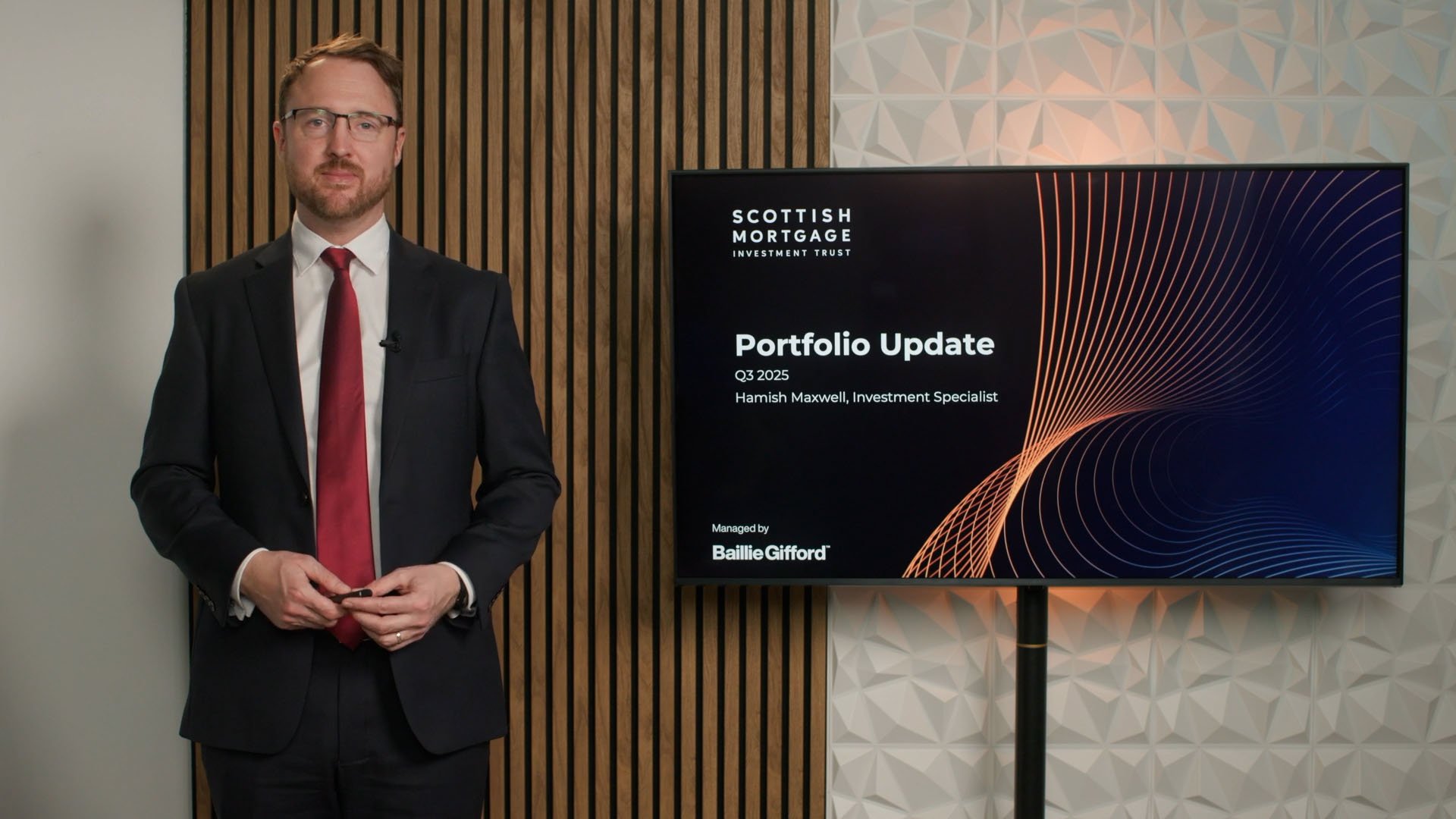Driving Ambition: BYD’s Right to Win
Claire Shaw
- BYD’s founder transformed the company from a battery maker into China’s bestselling carmaker
- The electric vehicle and plug-in hybrid specialist is expanding internationally by building factories and establishing local supply chains
- BYD’s technological leadership, cost controls and efficient decision-making give it edge
WATCH: Claire Shaw put BYD’s Sealion 7 through its paces
As with any investment, your capital is at risk.
Back in 2008, Wang Chuanfu gave a rare interview to the Financial Times. Under the headline ‘The quiet man of cars’, the engineer-turned-entrepreneur made a bold prediction. By 2025, he said, BYD would be global leader in ‘new-energy’ cars – battery-only and plug-in hybrid electric vehicles (EVs). He achieved that three years early and has consistently outpaced Tesla in battery-only models since late 2024.
While domestic Chinese sales account for much of BYD’s success to date, Wang is focused on international expansion. In its last financial year, the firm sold about one-tenth of its vehicles outside its home market. Wang wants it to be half by 2030. Claire Shaw believes he has earned “the right to win” globally, but it’s not essential for outperformance.
“BYD could achieve a share of China’s car market that matches Toyota’s in Japan – about 40 per cent,” the Trust’s investment specialist Claire Shaw explains.
“China has the world’s biggest EV market, making the domestic opportunity huge. So the valuation works on that alone – it’s almost like we’re getting the benefit of its international growth for free. Moreover, it was very, very cheap when we first took a holding in July 2024.”
From Consumer Electronics to EVs
BYD’s remarkable trajectory stems directly from Wang’s humble origins. One of eight siblings, he grew up in rural Anhui, then one of China’s poorest provinces. At age 15, he was orphaned, and it was only thanks to an elder brother’s generosity and several scholarships that he continued his schooling.
He eventually gained a master’s in metallurgical physics and chemistry and became general manager of a state-backed battery startup. But in 1995, he gave up this relative security to create his own business.
Today, BYD’s initials officially stand for “build your dreams”, but in the early days Wang joked it was “bring your dollars”. The company started out making batteries for mobile phones and other consumer electronics. By the time it floated in 2002, Motorola, Samsung and Nokia were clients.
BYD’s prospectus did not mention car-making ambitions, so investors were shocked when Wang used the IPO’s proceeds to buy failing automaker Tsinchuan. That he didn’t even know how to drive added to their concerns.
But Wang convinced the shareholders this wasn’t some harebrained pivot. Four years earlier, he had instructed engineers to secretly explore scaling the firm’s battery technology to power vehicles, and they had built a working prototype.
By embracing the mantra ‘reverse engineer, improve, make yourself’, they made further progress. And by 2009, BYD manufactured China’s bestselling petrol-based car and a plug-in variant popular with taxi drivers and government fleets. Furthermore, it had gained US titan Berkshire Hathaway as its largest institutional investor.
“Warren Buffett and Charlie Munger gave BYD essential capital and elevated the firm as a forward-thinking business,” says Shaw. “Munger later described it as the best investment he ever made.”
Investing in Innovation
In the shorter term, however, the financial and reputational shield that the legendary investors provided was vital. Overexpansion, production problems and increased competition stalled BYD’s annual sales at about 500,000 vehicles for a decade. Throughout, the company increased spending on research and development, even when profits came under strain, a period Wang later described as his “darkest moment”.
The strategy paid off in 2020, when the firm introduced two innovations. The first, a thin blade-shaped battery, extended the range of its EVs and was highly damage-resistant. BYD proudly showed it withstanding a nail-piercing test that made others explode. The second, a package of engineering improvements, radically increased its hybrids’ fuel efficiency.
These upgrades, coupled with government incentives for EV adoption, turbocharged sales, which reached 713,000 vehicles in 2021 and more than double that the next year.
BYD expects to sell more than 5 million vehicles in 2025, including 800,000 outside China. Shaw says its competitive advantage now rests on three pillars: technological leadership, cost controls and efficient decision-making.
Powering up: BYD's total vehicle production
“BYD now has over 120,000 engineers and technicians. That’s more than the rest of the Chinese EV companies combined. And every year, the firm has its pick of graduates.”
Their recent achievements include the ultra-fast charging Super e-Platform. It supplies BYD cars with 400km of range from a five-minute top-up. The first-of-its-kind service launched in March, when the firm announced it would build 4,000 compatible stations across China.
Additionally, it has made advanced driving assistance standard on all models. BYD’s sensor-enabled ‘God’s eye’ facility steers, brakes and parks but requires human supervision. Competitors often charge for such features.
BYD plans to expand its intelligent software team to 8,000 by 2027 and has partnered with other Chinese companies with self-driving expertise, including Baillie Gifford holding Horizon Robotics.
These moves show that Chinese automobile firms are no longer playing catch-up in terms of AI, and, by forming alliances, BYD has the potential to develop more advanced features at speed.
Regarding costs, BYD’s ‘vertical integration’ gives it a significant edge. Beyond batteries, the firm makes its own electric motors, power electronics, displays, software, LED lights and computer chips, among other components.
Furthermore, it owns lithium mining rights in Brazil and the world’s largest vehicle-carrying ship, which lets it drive 9,200 vehicles on and off rather than having to pack them in containers.
“The automotive industry typically operates on thin margins,” says Shaw. “All this helps BYD maintain larger ones and represents the outcome of many years of supply chain investments, costly to replicate.”
An alignment of interests
Turning to decision-making, Shaw says Wang’s highly engaged leadership remains critical. Having a founder in charge, she notes, encourages far-sighted planning and embeds a healthy radicalism. Moreover, co-founder Lu Xiangyang remains involved as vice chairman.
“Together they own about a quarter of the company,” says Shaw, “creating the strong alignment we look for between executives’ personal wealth and a company’s long-term interests.”
The Trust’s BYD holding now exceeds its stake in Tesla. Shaw says it isn’t a matter of switching horses, but instead reflects the different points the firms are at on their journeys.
“Tesla is between two major growth waves,” she says. “Tesla 1.0 was all about automotive and was driven by EV manufacturing, culminating in the Model Y becoming the world’s bestselling car in 2023.
Tesla 2.0 will centre on advances in autonomy, robotics and software, including its Robotaxis initiative. While Tesla’s progress in these is impressive, they remain nascent opportunities. Hence, the Trust has reduced its holding.”
By contrast, the Trust’s stake in BYD reflects excitement about the Shenzhen-based firm’s existing business and its commanding lead in the world’s second-largest economy.
“We’ve consistently invested in Chinese companies with Chinese founders, even when others declared the market uninvestable,” says Shaw. “There are risks, which is why our bar for inclusion is higher than for other stocks, and we evaluate each company individually.
But when you look at companies like BYD, the massive growth potential coupled with a low stock price relative to earnings suggests those risks are more than compensated for by the potential rewards.”
Wang once credited BYD’s success to its spirit of “dare to think, dare to act, dare to persevere”. By daring to invest, Scottish Mortgage is excited to plug into its potential.

Expanding abroad
BYD’s international ambitions involve establishing local supply chains rather than simply importing cars from China.
In Europe, it is constructing a $4.5bn factory in Hungary that will shortly produce 200,000 passenger cars a year. Efforts are also under way in south-east Asia and in Latin America, where its popularity with Uber drivers has made BYD Brazil’s bestselling EV. However, the US and Canada do not figure in its plans for now.
BYD beyond China: overseas EV production facilities
Scottish Mortgage Investment Trust invests in overseas securities. Changes in the rates of exchange may also cause the value of your investment (and any income it may pay) to go down or up. The Trust invests in emerging markets, which includes China, where difficulties with market volatility, political and economic instability including the risk of market shutdown, trading, liquidity, settlement, corporate governance, regulation, legislation and taxation could arise, resulting in a negative impact on the value of your investment.
About the author - Claire Shaw
Claire is a Portfolio Director at Baillie Gifford, playing a prominent role in servicing Scottish Mortgage’s UK shareholder base. She joined the firm in 2019. Before joining Baillie Gifford, Claire spent over a decade as a fund manager, focusing on managing European equity portfolios for a global client base. She is responsible for creating engaging content that makes the Scottish Mortgage portfolio accessible to all its shareholders and works closely with the managers, meeting with portfolio companies and conducting in-depth portfolio discussions with shareholders.
Regulatory Information
This content was produced and approved at the time stated and may not have been updated subsequently. It represents views held at the time of production and may not reflect current thinking. Read our Legal and regulatory information for further details.
A Key Information Document is available by visiting our Documents page. Any images used in this content are for illustrative purposes only.
This content does not constitute, and is not subject to the protections afforded to, independent research. Baillie Gifford and its staff may have dealt in the investments concerned. The views expressed are not statements of fact and should not be considered as advice or a recommendation to buy, sell or hold a particular investment.
Baillie Gifford & Co and Baillie Gifford & Co Limited are authorised and regulated by the Financial Conduct Authority (FCA). The investment trusts managed by Baillie Gifford & Co Limited are listed on the London Stock Exchange and are not authorised or regulated by the FCA.
Baillie Gifford Asia (Hong Kong) Limited 柏基亞洲(香港)有限公司 (BGA) holds a Type 1 licence from the Securities and Futures Commission of Hong Kong to market and distribute Baillie Gifford’s range of collective investment schemes and closed-ended funds such as investment trusts to professional investors in Hong Kong.
Baillie Gifford Asia (Singapore) Private Limited (BGAS) is regulated by the Monetary Authority of Singapore as a holder of a capital markets services licence to conduct fund management activities for institutional investors and accredited investors in Singapore. BGA and BGAS are wholly owned subsidiaries of Baillie Gifford Overseas Limited, which is wholly owned by Baillie Gifford & Co.
Europe
Scottish Mortgage Investment Trust PLC (the “Company”) is an alternative investment fund for the purpose of Directive 2011/61/EU (the “AIFM Directive”). Baillie Gifford & Co Limited is the alternative investment fund manager (“AIFM”) of the Company and has been authorised for marketing to Professional Investors in this jurisdiction.
This content is made available by Baillie Gifford Investment Management (Europe) Limited (“BGE”), which has been engaged by the AIFM to carry out promotional activities relating to the Company. BGE is authorised by the Central Bank of Ireland as an AIFM under the AIFM Regulations and as a UCITS management company under the UCITS Regulation. BGE also has regulatory permissions to perform promotional, advisory and Individual Portfolio Management activities. BGE has passported its authorisations under the mechanisms set out in the AIFM Directive.
Belgium
The Company has not been and will not be registered with the Belgian Financial Services and Markets Authority (Autoriteit voor Financiële Diensten en Markten / Autorité des services et marchés financiers) (the FSMA) as a public foreign alternative collective investment scheme under Article 259 of the Belgian Law of 19 April 2014 on alternative collective investment institutions and their managers (the Law of 19 April 2014). The shares in the Company will be marketed in Belgium to professional investors within the meaning the Law of 19 April 2014 only. Any offering material relating to the offering has not been, and will not be, approved by the FSMA pursuant to the Belgian laws and regulations applicable to the public offering of securities. Accordingly, this offering as well as any documents and materials relating to the offering may not be advertised, offered or distributed in any other way, directly or indirectly, to any other person located and/or resident in Belgium other than to professional investors within the meaning the Law of 19 April 2014 and in circumstances which do not constitute an offer to the public pursuant to the Law of 19 April 2014. The shares offered by the Company shall not, whether directly or indirectly, be marketed, offered, sold, transferred or delivered in Belgium to any individual or legal entity other than to professional investors within the meaning the Law of 19 April 2014 or than to investors having a minimum investment of at least EUR 250,000 per investor.
Germany
The Trust has not offered or placed and will not offer or place or sell, directly or indirectly, units/shares to retail investors or semi-professional investors in Germany, i.e. investors which do not qualify as professional investors as defined in sec. 1 (19) no. 32 German Investment Code (Kapitalanlagegesetzbuch – KAGB) and has not distributed and will not distribute or cause to be distributed to such retail or semi-professional investor in Germany, this document or any other offering material relating to the units/shares of the Trust and that such offers, placements, sales and distributions have been and will be made in Germany only to professional investors within the meaning of sec. 1 (19) no. 32 German Investment Code (Kapitalanlagegesetzbuch – KAGB).
Luxembourg
Units/shares/interests of the Trust may only be offered or sold in the Grand Duchy of Luxembourg (Luxembourg) to professional investors within the meaning of Luxembourg act by the act of 12 July 2013 on alternative investment fund managers (the AIFM Act). This document does not constitute an offer, an invitation or a solicitation for any investment or subscription for the units/shares/interests of the Trust by retail investors in Luxembourg. Any person who is in possession of this document is hereby notified that no action has or will be taken that would allow a direct or indirect offering or placement of the units/shares/interests of the Trust to retail investors in Luxembourg.
Switzerland
The Trust has not been approved by the Swiss Financial Market Supervisory Authority (“FINMA”) for offering to non-qualified investors pursuant to Art. 120 para. 1 of the Swiss Federal Act on Collective Investment Schemes of 23 June 2006, as amended (“CISA”). Accordingly, the interests in the Trust may only be offered or advertised, and this document may only be made available, in Switzerland to qualified investors within the meaning of CISA. Investors in the Trust do not benefit from the specific investor protection provided by CISA and the supervision by the FINMA in connection with the approval for offering.
Singapore
This content has not been registered as a prospectus with the Monetary Authority of Singapore. Accordingly, this content and any other content or material in connection with the offer or sale, or invitation for subscription or purchase, of the Trust may not be circulated or distributed, nor may be offered or sold, or be made the subject of an invitation for subscription or purchase, whether directly or indirectly, to persons in Singapore other than (i) to an institutional investor (as defined in Section 4A of the Securities and Futures Act 2001, as modified or amended from time to time (SFA)) pursuant to Section 274 of the SFA, (ii) to a relevant person (as defined in Section 275(2) of the SFA) pursuant to Section 275(1), or any person pursuant to Section 275(1A), and in accordance with the conditions specified in Section 275 of the SFA, or (iii) otherwise pursuant to, and in accordance with the conditions of, any other applicable provision of the SFA.
Where the Trust is subscribed or purchased under Section 275 by a relevant person which is:
(a) a corporation (which is not an accredited investor (as defined in Section 4A of the SFA)) the sole business of which is to hold investments and the entire share capital of which is owned by one or more individuals, each of whom is an accredited investor; or
(b) a trust (where the trustee is not an accredited investor) whose sole purpose is to hold investments and each beneficiary of the trust is an individual who is an accredited investor, securities or securities-based derivatives contracts (each term as defined in Section 2(1) of the SFA) of that corporation or the beneficiaries’ rights and interest (howsoever described) in that trust shall not be transferred within six months after that corporation or that trust has acquired the securities pursuant to an offer made under Section 275 except:
(1) to an institutional investor or to a relevant person or to any person arising from an offer referred to in Section 275(1A) or Section 276(4)(c)(ii) of the SFA,
(2) where no consideration is or will be given for the transfer;
(3) where the transfer is by operation of law; or
(4) pursuant to Section 276(7) of the SFA or Regulation 37A of the Securities and Futures (Offers of Investments) (Securities and Securities-based Derivatives Contracts) Regulations 2018.







